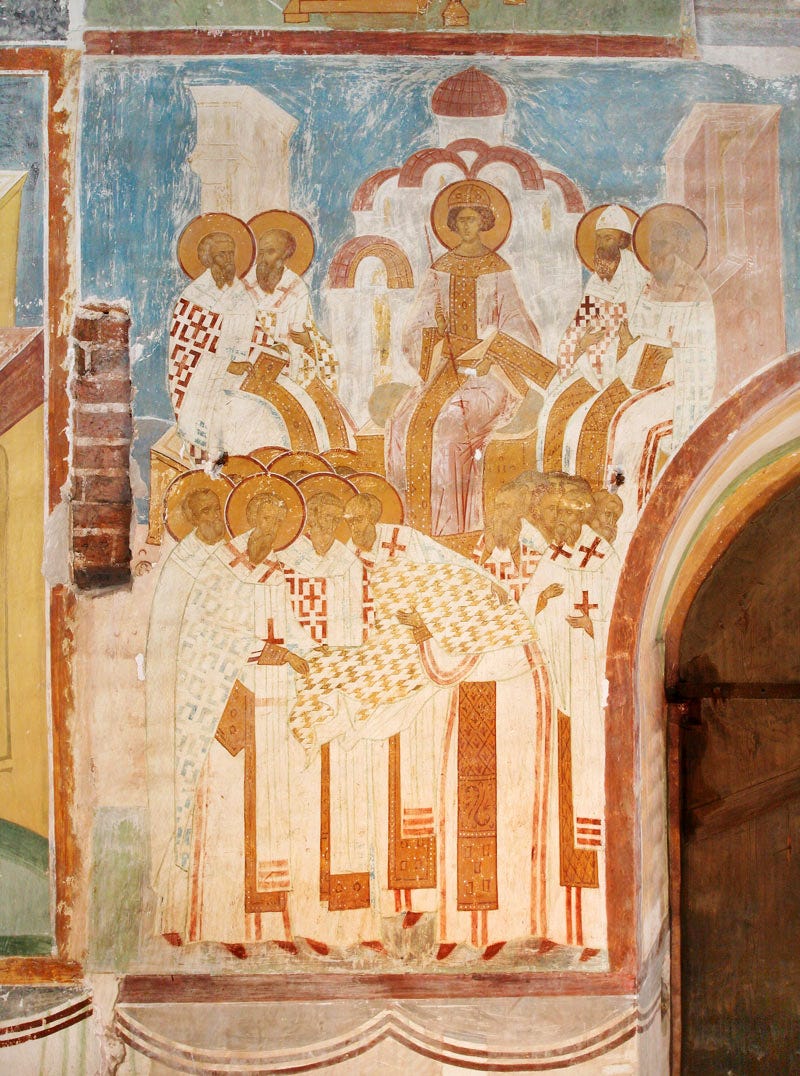Understanding Nestorianism: A Controversy Over Christ's Natures
The term Nestorianism takes its name from Nestorius (c. 386–c. 451), whose theological position on Christ sparked controversy across the Christian world. At its core, Nestorius maintained that Christ assumed a human body that could suffer and undergo change, while his divinity remained unable to suffer and change.
Yet the way he argued his case made it sound like Christ as a person was not born of a virgin, did not die, was not buried, nor was resurrected. Instead, his argument suggested that only the human body Christ assumed experienced these things, leaving his Godhead unchanged.
The Theotokos Controversy
The particular flash point in Nestorius's argument was his denial that Mary bore God, which the title theotokos (God-bearer) emphasized. In Nestorius's first sermon against the Theotokos, he contrasts two terms for Mary—Theotokos and Anthropotokos (the term Nestorius affirmed)—and asks the key question: "Does God have a mother?"
Nestorius found it absurd to say that Mary gave birth to God, citing John 3:6 that only flesh gives birth to flesh. His goal was to argue that "she gave birth to the human being, the instrument of the godhead." What's more, it wasn't just the Incarnation or the Virgin birth that concerned Nestorius; he explicitly stated, "the Incarnate God did not die."
Nestorius's Explanation
Nestorius explained: "That which was formed in the womb was not in itself God. That which was created by the Spirit was not in itself God. That which was buried in the tomb was not in itself God."
How did he explain how Christ's death, birth, and burial do not relate to God directly? Here's his answer: "But since God is within the one who is assumed, the one who was assumed is styled God because of the one who assumed him." In other words, Nestorius claimed that the Word assumed (took) a human body to himself, and for this reason, the body itself can suffer, be born, and be buried, but not God himself.
For Nestorius, his major concern centered on the nature of God being unable to suffer because God has no flesh. Interestingly, this does not mean he explicitly claimed there are two persons in Christ. In his second letter to Cyril of Alexandria, Nestorius explained what he meant by the two natures of Christ, and he affirmed that there is "one unitary person."
How could Nestorius claim there is one unitary person while being condemned for dividing Christ into two persons? Here, we need to distinguish concepts from judgments. Nestorius may have used concepts that sound orthodox, but when he explained his argument, it became clear that his judgments divided Christ into two.
Nestorius believed the term "Christ" in Scripture allows you to think about Christ as both God and man in a very specific way: whenever Christ suffers, Nestorius attributed that suffering to the human flesh because the human flesh alone is passible; that's in the nature of the body.
His major concern was to say that when the Bible speaks of Christ suffering on the cross, it is only speaking about his human flesh that suffered, not his Godhead, because that by nature is impassible.
The Problem with Nestorianism
But notice the implications of his position:
We cannot call Mary Theotokos because that would imply God could suffer change. (But God the Son is the subject, the person whom Mary bore.)
We cannot say that God the Son suffered, died, and was buried, because only the body he assumed did those things.
While he apparently denies two persons in Christ in explicit language, he affirms that the body does some things the Godhead does not do.
Christ is thus divided. And this is theologically absurd.
Christ died on the cross. Not his body. Christ died for our sins. People do things. Christ is a Person. He does things.
Likewise, it was the One Lord Jesus Christ, the only Begotten from the Father, who was born of a virgin.
As Cyril says, "the Word of God the Father suffered in the flesh for our sake." This same Word of God the Father also was born of the virgin Mary.
In both cases, it is the Word that undergoes suffering and being born of a woman.
Natures don't "do." Persons "do."
Further reading
A few important qualifications need to fill out the picture. We must affirm that God the Son suffered in his own flesh. We do not grant that God the Trinity suffered at the cross, but only God the Son in his own flesh.
Read the following articles to learn more:
Wyatt Graham, “Was God Crucified?”
Wyatt Graham, “Divine Impassibility: Does God Feel Emotions Like We Do?”




One correction, not to your argument but to your word choice: every time you write “human body” should really be “human nature.” I don’t recall Nestorius ever arguing the Apollinarian position that the Word was the soul of Jesus’s body. He did affirm, as one of your quotes from him shows, that Christ took a full human nature, body and soul, from Mary.
Can one affirm the two natures of Christ with a real mother without calling Mary "Theotokos?" To be clear, Mary is unequivocally the mother who 'births the Son of God', Jesus (Lk 1.35). There is no other. Yet, is the title 'Theotokos' scripturally found and/or necessary for salvation, etc.?